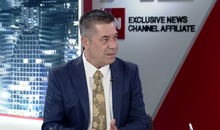
 Flash News
Flash News
9 months after taking office, the Chief of the Guard, Ermal Onuzi, resigns
He breaks arrest, steals a car and escapes like in a movie, the serial thief from Tirana is caught!
Name/ She deceived clients and took their money, the lawyer is wanted
Criminal group busted, trafficking dogs from Spain to Finland, the 'heads' of the group were Albanians
She escaped drowning in Durres, the 31-year-old English woman speaks: We capsized instantly, my friend was trapped under the vehicle
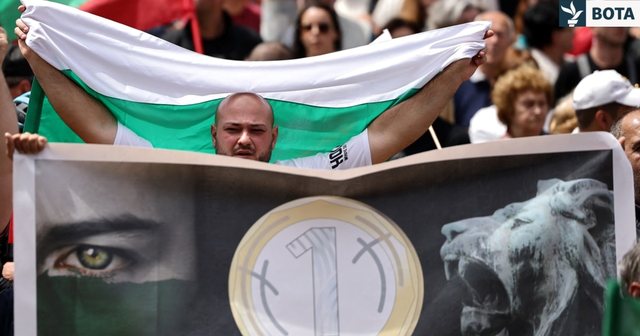
Bulgarian authorities expect to receive the green light this week from the European Commission and the European Central Bank to introduce the euro from January 1, 2026.
Such a signal comes despite anti-euro protests, in which angry Bulgarian youth waved Bulgarian and Russian flags, as well as a serious arson incident against the European Commission building in Sofia.
Adoption of the euro was a condition for Bulgaria's membership in the European Union, but legislative failures - including reforms to combat money laundering - then concerns about inflation and the ongoing political blockade, have made the path difficult.
However, on June 4, Bulgaria expects a positive assessment from the European Commission and the European Central Bank on its readiness to introduce the euro from next year.
A decision in favor would be the second major step for Bulgaria in a year on its path to full EU integration. In January, Sofia became a full member of the Schengen area, and Bulgaria's borders with neighboring Greece and Romania are now fully open.
Bulgaria joined the EU in 2007 and, upon signing the accession treaty, pledged to also introduce the euro.
Since then, this goal has been consistently supported by all governments in Sofia.
The case, however, was initially postponed due to the financial crisis in Greece in 2010.
Then, in 2014, a large Bulgarian bank went bankrupt, and local institutions have yet to fully investigate the causes.
Only in 2020 did Bulgaria become a member of the European Exchange Rate Mechanism, ERM II, or the so-called waiting room for the euro.
But, to further add to the obstacles on the road to the euro, Bulgaria has been plunged into a period of political turbulence, holding seven parliamentary elections since 2021, which were followed by a number of short-lived governments.
However, one positive side to this instability has been the fact that it has made anti-corruption reforms part of the government agenda - pro-Western politicians with a reformist orientation are now in parliament.
Support for the euro has fallen and now more Bulgarians are against its introduction than for it.
Opposition could be seen on the streets of Sofia and other cities over the weekend, when thousands of people protested against joining the European single currency zone, fearing it will damage the economy and raise consumer prices.
A recent Eurobarometer survey showed that 50 percent of Bulgarians are against adopting the euro, while 43 percent are in favor.
The explanation can be found in the same survey: the biggest problem for Bulgarians in recent years is the rising cost of living.
This fear has been further fueled by aggressive campaigns by anti-European and pro-Russian parties, which are accused of disinformation campaigns aimed at scaring ordinary Bulgarians.
At the forefront of these campaigns was the Revival party, which recently signed a cooperation agreement with Russia's ruling party, United Russia.
According to her, people's savings will be taken if they are not used within a certain period of time. According to her, a digital euro will also be introduced so that authorities can monitor everyone.
None of this is true, but the general lack of trust in Bulgaria - both in politicians and institutions, as well as in the media - has meant that tensions and concerns are high.
The introduction of the euro now seems irreversible.
Not even the surprising move of President Rumen Radev, who called for a last-minute referendum on the date of the currency's introduction, could stop it.
The Constitutional Court found that it is legally impossible to hold such a vote, while 171 out of 240 members of parliament support the government in taking the final steps to introduce the euro.
If all goes according to plan, Bulgaria will become the 21st country in the Eurozone from January 1.
All prices and salaries will then be converted to euros.
The exchange rate has long been fixed: 1 euro will be equal to 1.95583 leva. It has been fixed this way since the launch of the euro in 2002, because the Bulgarian leva was previously pegged to the German mark.
Prices in some supermarkets in Bulgaria are now in both currencies.
People will have six months to exchange their cash savings for euros, commission-free. Prices will remain in both currencies for at least that period, if not longer.
Experts say that the introduction of the euro will boost Bulgaria's economy.
For most Bulgarians, the change will not be that big.
Property prices have long been quoted in euros. Some services are also calculated in euros. Many people's savings are already in euros./ REL
Latest news


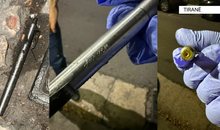

Baçi: Rama was afraid of popular discontent, stole more votes than he thought
2025-06-03 22:10:14


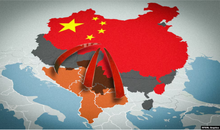
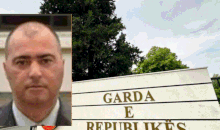
9 months after taking office, the Chief of the Guard, Ermal Onuzi, resigns
2025-06-03 20:14:09
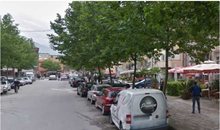
15-year-old injured by gunfire at 'Ali Demi' pizzeria, police arrest perpetrator
2025-06-03 19:32:04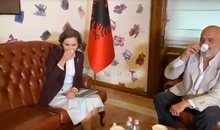
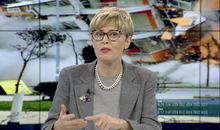
Why don't I want to spend a single day in Vlora?!
2025-06-03 18:26:21
Tech-stinction alert: Will humanity shrink to just 100 million people?
2025-06-03 18:02:23
EPP accepts Berisha's request: A fact-finding mission will be sent to Albania
2025-06-03 17:49:47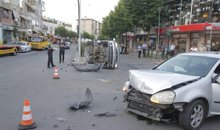
Three vehicles collide in Elbasan, several injured suspected
2025-06-03 17:45:02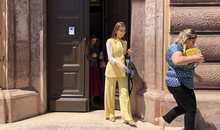
Prosecutor Marsida Frashëri faces a request for dismissal at the KPA
2025-06-03 17:21:57
Nga Holanda në Finlandë, si operonte rrjeti shqiptar i drogës
2025-06-03 17:10:34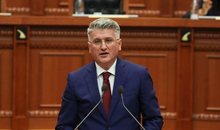
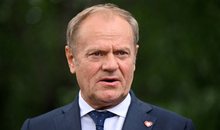
Tusk kërkon votëbesim në parlamentin polak më 11 qershor
2025-06-03 16:59:01

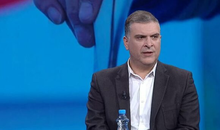
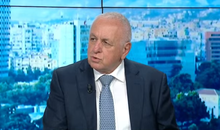



EUROPOL: Minors increasingly targeted by terrorist propaganda
2025-06-03 15:04:56
Kindergarten in Gramsh reopens where children were poisoned with salmonella
2025-06-03 14:59:16

OECD: Global economy heading for weakest growth since Covid-19
2025-06-03 14:35:26
A farm in Postribë, Shkodra, is quarantined, small livestock infected,
2025-06-03 14:21:50
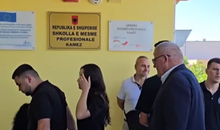
74-year-old from Kamza, the oldest high school graduate in the English exam
2025-06-03 13:59:30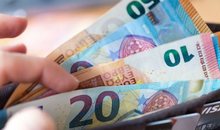
The average salary in Kosovo reached 639 euros in 2024
2025-06-03 13:49:00
Osmani invites parties to consult on the date of local elections
2025-06-03 13:41:33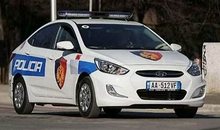
Name/ She deceived clients and took their money, the lawyer is wanted
2025-06-03 13:25:24

He hit and killed a 59-year-old man and fled, the young man is wanted
2025-06-03 12:58:29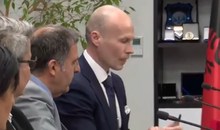
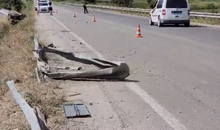
Two cars collide in Bulqiza, drivers injured
2025-06-03 12:34:46
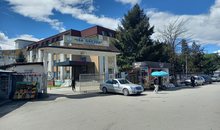
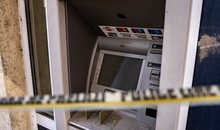
15 people arrested for cyber fraud and misuse of bank cards in Gjilan
2025-06-03 12:02:41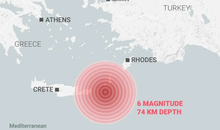
Greece and Turkey hit by earthquake
2025-06-03 11:49:08
Due to lack of lawyers/ The hearing for the 'Golden Bullet' is postponed again
2025-06-03 11:36:52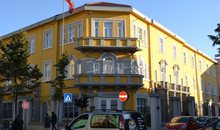
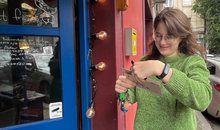
More than half of foreigners in Serbia are Russians
2025-06-03 11:15:59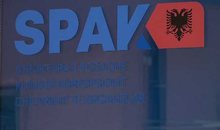

Scandal repeats, English exam thesis leaked
2025-06-03 10:46:54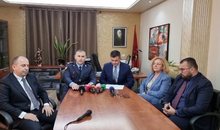

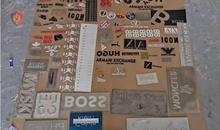
They printed fake logos of well-known brands, 4 arrested, two others wanted
2025-06-03 09:42:58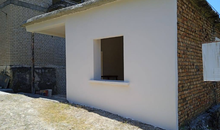
A verbal agreement by Rama prompted the contested interventions in Spaç
2025-06-03 09:23:32


Horoscope, what do the stars have in store for you today?
2025-06-03 08:34:30

Temperatures up to 31 degrees Celsius, weather forecast for this Tuesday
2025-06-03 08:09:06
Morning Post/ In 2 lines: What mattered yesterday in Albania
2025-06-03 07:51:10



Convinced DP candidate: Tirana district is opening, MPs' order changes
2025-06-02 21:42:53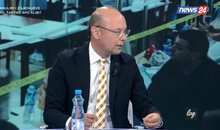


Cara: At the head of the state is a party that was not voted for by Albanians
2025-06-02 21:16:53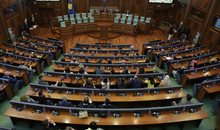
The constitution of the Kosovo Assembly fails for the 25th time
2025-06-02 21:10:46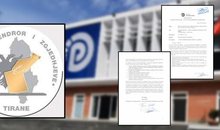
"130 thousand unused ballots", CEC responds to the DP
2025-06-02 20:51:02
Italian professor who insulted Giorgia Meloni's daughter attempts suicide
2025-06-02 20:25:21
Fire breaks out in a building in Astir
2025-06-02 20:22:46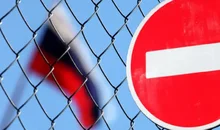
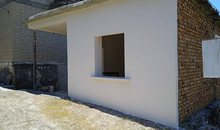
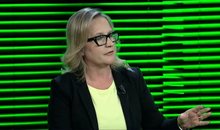
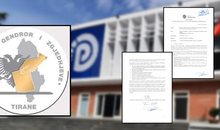
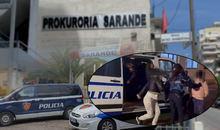
Two women threaten the Saranda prosecutor in her office
2025-06-02 19:09:20
Etna wakes up again, the most active volcano in Europe erupts
2025-06-02 19:00:36


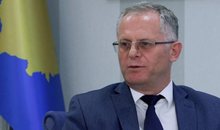
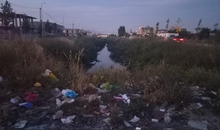
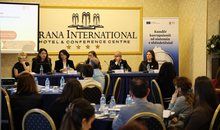


Fire reactivates in Darëzeza forest, firefighting efforts impossible
2025-06-02 17:28:29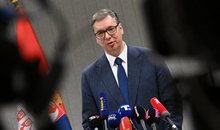
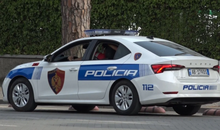
Cultivating cannabis on a plot, 35-year-old arrested in Mirdita
2025-06-02 16:59:27

Switzerland/ Albanian caught with drugs worth over 1 million euros
2025-06-02 16:50:38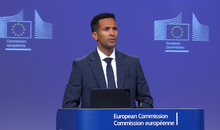
Kosovo-Serbia dialogue meetings resume in Brussels
2025-06-02 16:32:44
The VPN Era in Albania: How the TikTok Ban is "Failing", Video Views Increase
2025-06-02 16:26:36
Mahmut Orhan brings a unique experience with Curious X
2025-06-02 16:19:55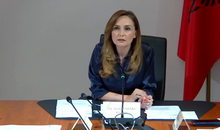

Businesses "forgot" to pay for elections, liabilities reached 4.7 billion lek
2025-06-02 15:50:27
Photo/ Caught with cocaine, Albanian arrested in Britain
2025-06-02 15:31:12


He violently opposed police officers, 39-year-old arrested in Vlora
2025-06-02 15:04:28


